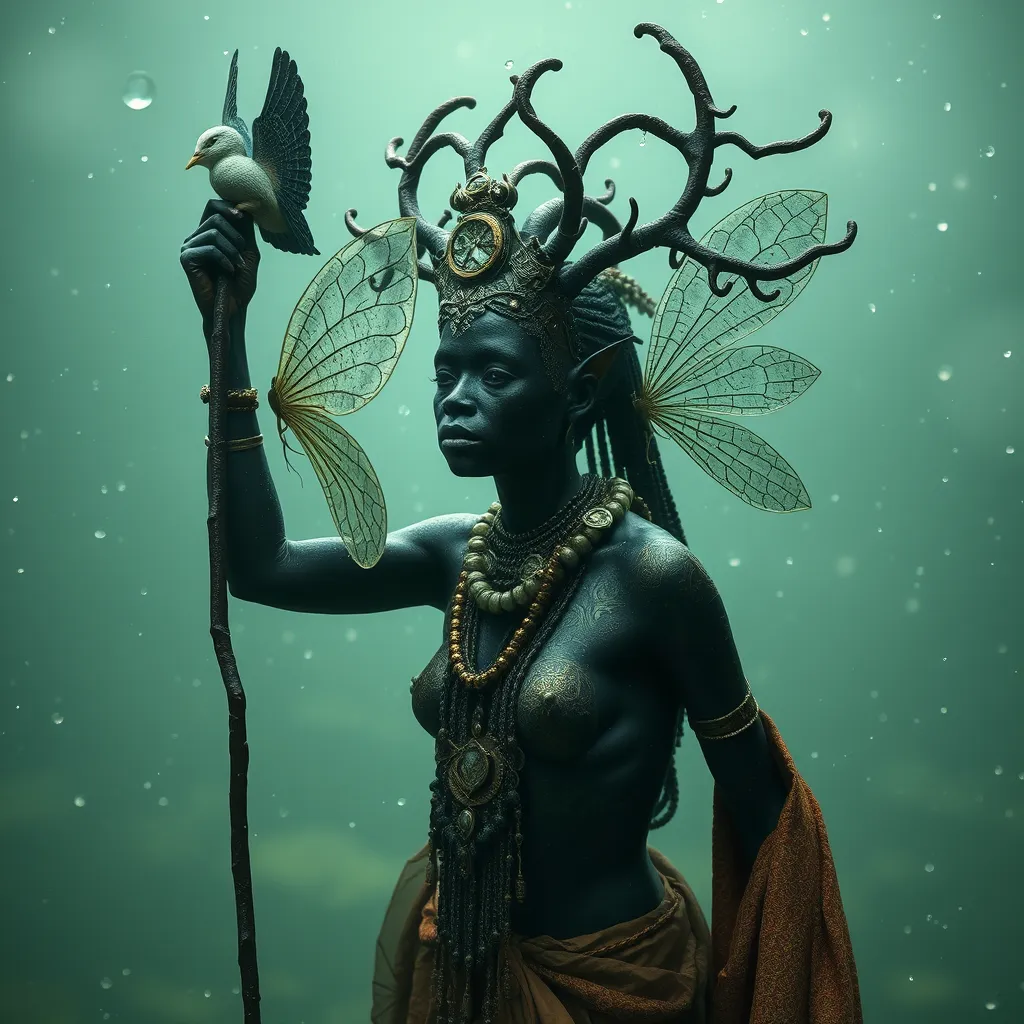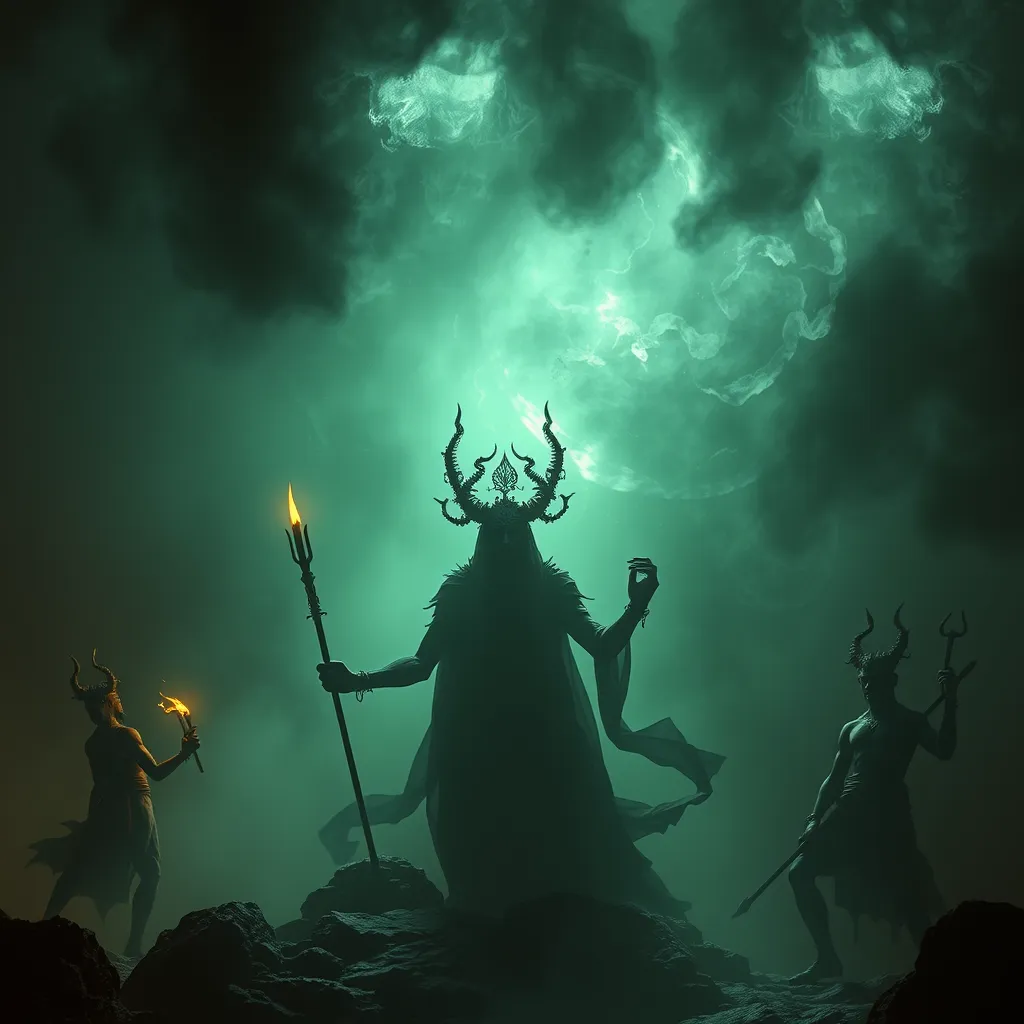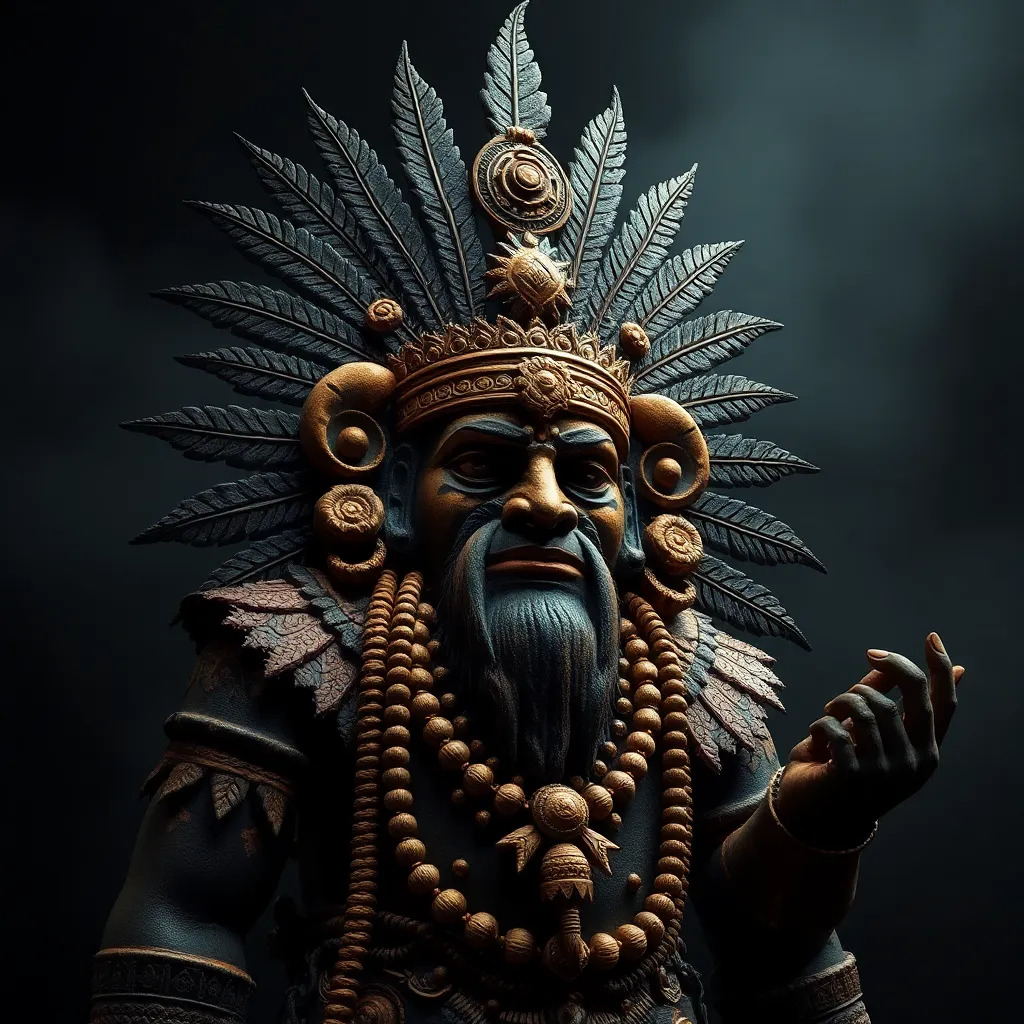The Nymphs of African Mythology: Exploring the Lore of the Mammy Water and the Abiku
I. Introduction
Nymphs, in the context of African mythology, are often defined as supernatural female beings associated with natural features, particularly water bodies. They embody the essence of nature’s beauty and power while also holding a dual nature that can be both nurturing and destructive.
Among the most significant figures in this realm are Mammy Water and the Abiku. Mammy Water, a water spirit, is revered in various African cultures, while the Abiku, a spirit associated with children, represents the cycle of life and death. Exploring these mythological beings is essential not only for understanding African spiritual beliefs but also for appreciating their influence on cultural practices and narratives.
II. Origins of Mammy Water
A. Historical background and cultural significance
The origins of Mammy Water can be traced back to the coastal regions of West Africa, particularly among the people of Nigeria, Ghana, and Cameroon. This water spirit is often depicted as a beautiful woman with the lower body of a fish, embodying both the allure and danger of water.
B. Geographic variations and representations across African cultures
Mammy Water is known by various names across different cultures, such as “Mami Wata” in West Africa and “Nana-Buluku” among the Fon people in Benin. While the core attributes remain similar, local adaptations reflect the specific cultural values and environmental contexts.
C. The symbolism of water and femininity in Mammy Water mythology
Water is a powerful symbol of femininity in many African traditions, representing fertility, life, and cleansing. Mammy Water’s connection to water emphasizes her role as a nurturer, while her often dangerous allure speaks to the unpredictable nature of both women and the waters they inhabit.
III. Characteristics and Attributes of Mammy Water
A. Physical descriptions and common depictions
Mammy Water is frequently illustrated as a stunning woman with long, flowing hair, often adorned with jewelry made of seashells and pearls. Her appearance varies, but she is generally depicted in a seductive manner, embodying the beauty and mystery of the ocean.
B. Powers and abilities attributed to Mammy Water
- Control over water bodies and aquatic life
- Healing abilities and the power to grant fertility
- Influence over love and relationships
- Capacity to bestow wealth and prosperity
C. The dual nature: benevolent protector vs. dangerous seductress
Mammy Water’s duality is marked by her role as a protector of the water and its inhabitants, as well as a seductress who lures men to their doom. This complexity makes her a compelling figure in African mythology, representing both the nurturing and perilous aspects of femininity.
IV. The Lore of Mammy Water
A. Popular myths and stories surrounding Mammy Water
Numerous myths surround Mammy Water, often depicting her interactions with humans. One popular story tells of a fisherman who, after encountering her, becomes wealthy beyond measure but is ultimately consumed by greed and loses everything.
B. Cultural practices and rituals associated with Mammy Water
In many communities, rituals are performed to honor Mammy Water, such as offerings of fruits, flowers, and other tokens placed at the water’s edge. These practices seek to appease her and ensure safe passage over water.
C. The role of Mammy Water in community beliefs and traditions
Mammy Water is often invoked in ceremonies related to childbirth, marriage, and healing. Her presence in these rituals highlights the community’s respect for her power and the belief in her ability to influence human affairs.
V. Understanding the Abiku
A. Definition and characteristics of the Abiku
The Abiku are spirits believed to be the souls of children who die and are reborn. In many cultures, they are seen as mischievous, often causing illness or death to themselves or their mothers, reflecting the fragility of life.
B. Cultural significance and origins of the Abiku concept
The concept of the Abiku is prevalent in Yoruba culture, among others, and serves as a poignant reminder of the struggles surrounding childbirth and child mortality. The Abiku narrative often embodies the hopes and fears of parents regarding their children’s survival.
C. Variations in the Abiku narrative across different African communities
While the core idea remains consistent, variations of the Abiku story exist across different communities. In some narratives, the Abiku may return to the living world to fulfill certain tasks or seek revenge for their untimely deaths.
VI. The Role of the Abiku in African Mythology
A. Myths and stories involving the Abiku
Numerous stories revolve around the Abiku, often depicting their playful yet tragic nature. One common tale tells of an Abiku child who, despite being born to a loving family, chooses to return to the spirit world, highlighting the tension between the physical and spiritual realms.
B. Symbolism of life, death, and rebirth in Abiku lore
The Abiku embodies the cyclical nature of life and death, symbolizing hope and despair. Their existence raises profound questions about the afterlife and the spiritual connections that bind families across generations.
C. The Abiku’s connection to the spiritual world and ancestral beliefs
In many African cultures, the Abiku serves as a bridge between the living and the dead. They are believed to carry messages from the ancestors and play a crucial role in ancestral worship and remembrance.
VII. Comparative Analysis: Mammy Water vs. Abiku
A. Similarities in themes and cultural roles
Both Mammy Water and the Abiku share themes of duality, transformation, and the interplay between life and death. They reflect cultural beliefs about femininity, fertility, and the spiritual connections to water and ancestors.
B. Differences in representation and narrative function
While Mammy Water often represents seduction and the nurturing aspects of femininity, the Abiku is more closely associated with the tragic nature of life and the struggles of motherhood. Their narratives serve different purposes in teaching moral lessons and cultural values.
C. The impact of these figures on contemporary African identity and culture
Both Mammy Water and the Abiku continue to influence contemporary African identity and culture. They inspire art, music, and literature, serving as symbols of resilience and the richness of African heritage.
VIII. Conclusion
The significance of Mammy Water and the Abiku in African mythology cannot be overstated. These figures encapsulate the complexities of life, death, and the natural world, offering insights into the beliefs and values of various African cultures.
Preserving and understanding these cultural narratives is crucial, as they provide a window into the spiritual lives of people across the continent. As we reflect on Mammy Water and the Abiku, we recognize their enduring influence on both African and global culture, reminding us of the power of mythology to shape identity and community.



